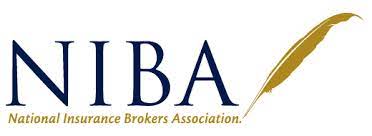NIBA welcomes icare repair
NIBA welcomes the NSW Government's announcement that it will introduce new laws to improve workers compensation governance.
“This is a positive first step to what needs to be extensive reforms in NSW workers compensation”, said Philip Kewin, NIBA CEO.
However, NIBA believes more needs to be done to ensure the ongoing affordability and sustainability of the NSW workers compensation scheme. Spiraling claims costs have resulted in a dramatic increase to the cost of workers compensation insurance for many NSW employers.
Earlier this week, NIBA had written to the NSW Minister for Work Health and Safety Sophie Cotsis, citing serious concerns about the about the ongoing affordability of workers compensation insurance for NSW employers.
Insurance brokers act on behalf of over 50% of the employers who contribute to the NSW workers compensation scheme. As brokers have been assisting their clients with the renewal of their workers compensation insurance, it has become clear that the way in which some employers have been reclassified by icare has increased their actual premium well above the quoted average of 8%, with some premium increases reaching as high as 30%. These increases do not take into consideration wage increases, which also have an inflationary effect on premiums.
Mr Kewin says “the recent premium increases will affect some employers dramatically. The review of the Workers Compensation Industry Classification and the removal of the Employer Safety Incentive, in favour of a new Employer Safety Reward, would mean that the real increase for some employers could be upwards of 30%, and that is before taking into consideration higher wage costs."
"The way employers are being assessed for the Employer Safety Reward will make it impossible for many to meet the hurdles necessary to qualify for the discounts they previously held. This will place significant pressure on businesses to meet their ongoing running costs,” he said.
In response to concerns raised by the industry and the business sector, the NSW Government announced this week that it will focus on improving workers compensation governance by appointing an employer and employee nominee to the icare Board.
The Minister for Work Health and Safety, Sophie Cotsis said it was critical that injured workers and premium-paying businesses were given a seat at the board table to support ongoing reform.
Two suitably qualified employer and employee directors will be nominated by employer and employee bodies and will also replace two non-executive directors, leaving the size and cost of the icare Board unchanged with nine directors.
Employers and Unions NSW will have a formal say in the process, with both groups nominating a non-executive director.
“Return-to-work rates and the dissatisfaction felt by many injured workers highlight the need for a diversity of views and more robust decision-making on the icare Board,” said Minister Cotsis.
“Appointing employer and employee nominees to the icare board will ensure these important perspectives are heard in the icare boardroom.
icare knows that this improvement and reform journey is ongoing. There will be more steps to come.”
The premium increases are said to be attributed to a high inflationary environment driving up claim costs, market volatility and increasing psychological claims, however, NIBA believes some claims management practices and administration inefficiencies, are contributing to increasing claims costs.
icare provides workers compensation for about 330,000 business and 3.4 million workers in New South Wales, managing about 60,000 new claims each year.
Legislation to amend the State Insurance and Care Governance Act 2015 for the board changes will be introduced to NSW Parliament on Wednesday, 28 June.
NIBA acknowledges the Government’s announcement that the improvement and reform journey regarding workers compensation is ongoing. NIBA looks forward to the opportunity to have necessary conversations about wider reform, as the urgency around the sustainability of the workers compensation scheme in NSW cannot be overstated.
